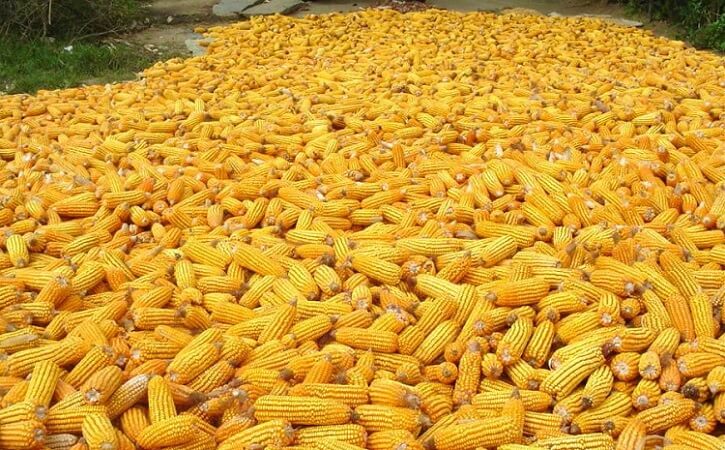Following the call by poultry farmers for the Federal Government to lift the ban on maize importation, the Maize Association of Nigeria, has said that any reversal of the ban would hamper the growth of the maize value chain as well the overall agriculture sector.
The President, MAAN, Bello Abubakar while addressing a Press briefing in Abuja, stated that importation of maize grains into the country at this crucial period will serve as disincentive to maize production, maize farmers and food chain system in the country.
Advertisement
The Association noted that the agitation by some associations including the Poultry Association of Nigeria seeking the authorization of maize importation from the official foreign exchange market is seen as a calculated attempt to further hinder maize production in Nigeria.
He said, “The Federal Government of Nigeria through the CBN has graciously approved the release of 300,000MT of maize grains from the Strategic Grains Reserve to ameliorate the adverse effect of maize grain price hike and scarcity in the country.
“Consequently, it is needless, counterproductive and unsustainable to lift ban on maize grains importation. We believe that not acceding to maize importation will aid not just attaining food security as a nation, but also in creating job opportunities and fostering economic development as well.”
Poultry Association of Nigeria had urged the government to allow the importation of maize and ban its exportation so that they can have enough feed for their chicken.
Advertisement
Poultry farmers had noted that many farmers have closed their farms due to challenge of accessing feeds at affordable prices, adding that the poultry market is no longer profitable.
Abubakar speaking further, noted that the current high price of maize grains in the country is temporal as it is occasioned by the Covid-19 Pandemic that disrupted supply chains and increased the cost of inputs for many farming activities.
He also decried that the hoarding of maize grains by some commodity agents had resulted in artificial scarcity and attendant price hike.
“This has effect on commercial consumers that use maize as a key input in their production processes, like poultry farmers and consumer goods manufacturers.
“It is worthy of note that the Covid-19 pandemic disrupted supply chains and increased the cost of inputs for many farming communities globally.
Advertisement
“The Central Bank of Nigeria as part of her developmental functions, has been striving hard to increase national production volumes of maize. The CBN policy of agriculture, small and medium enterprise scheme and the CBN Anchor Borrowers Programme have been very successful in opening up the agricultural sector in the country.
“Both policies have worked effectively in closing the productivity gap in the crop farming subsector. This effort should be appreciated and sustained. “
The National President, Maize Growers, Processors & Marketers’ Association of Nigeria, Edwin Uche also commended the efforts of the Federal Government in sustaining the Anchor Borrowers Program, adding that it has led to a significant increase in maize production across the country.
According to him, the association of maize farmers have built up capacity to produce enough maize for both local consumption and industrial use, adding that the association production target for 2021 stands at 25 million metric tonnes
He said, “A lot has happened since the covid-19 pandemic, in the past three years, we have had tremendous growth in the production of maize, as we recorded 20 million metric tonnes as at the end of 2020, through the Anchor Borrowers Program.
“This is an off-shoot of the effort of the Federal Government to ensure that agriculture remain the mainstay of the Nigerian economy and we are hopeful that with dry season and efforts to manage the Covid-19, we would be able to produce at least 25 million metric tonnes before the end of the year.”
Advertisement
Speaking further, Uche noted that any effort in importing maize will adversely affect the livelihood of Nigerians, who depend on income from maize farming.
He assured that the association has developed a framework to ramp up maize production and bridge the gap existing in the maize value chain.
“If not for the impact of Covid-19, we will not be talking about high price of maize, or increase in the price of maize derivatives. As an association, we are looking for ways to ameliorate these issues.
“In little time, say in the next three months the price of maize will drop, we are also working to curb the hoard of maize which has made it difficult for people to access maize and causing unnecessary scarcity.
“We have lost millions of money to importation, we have lost values to importation and this must not continue,” he added.



